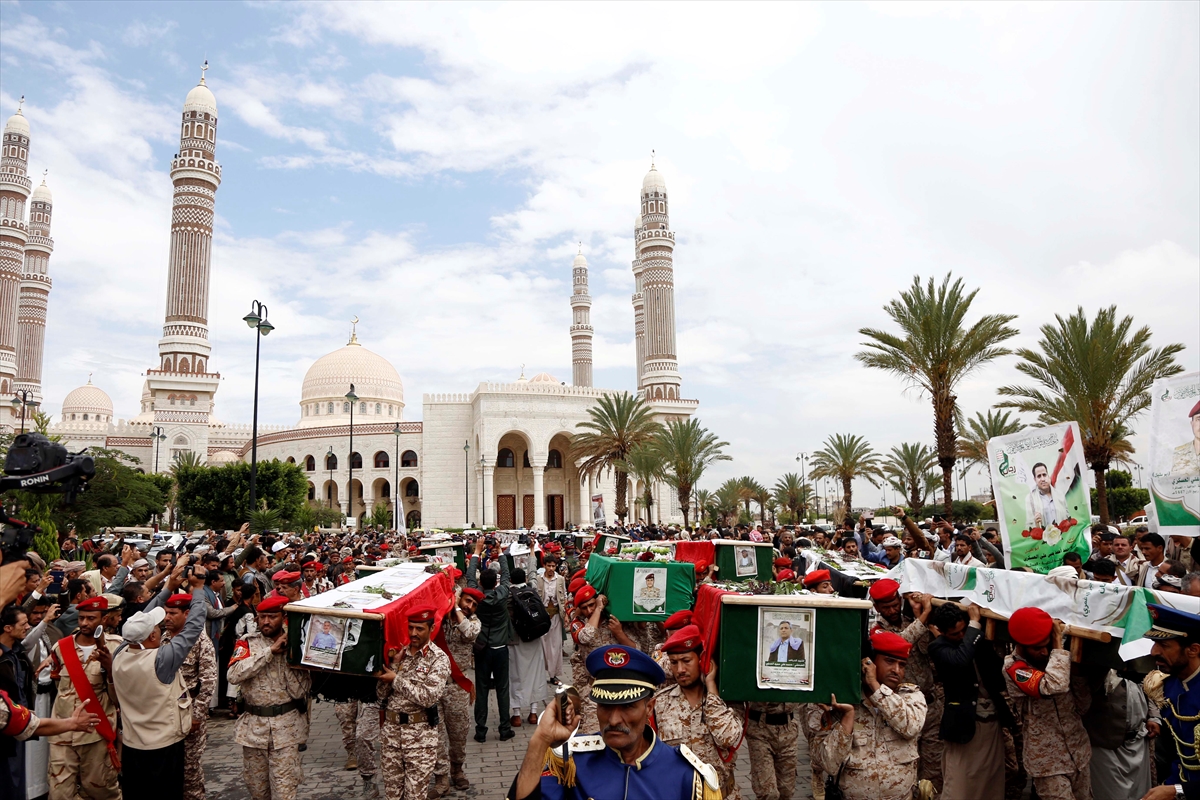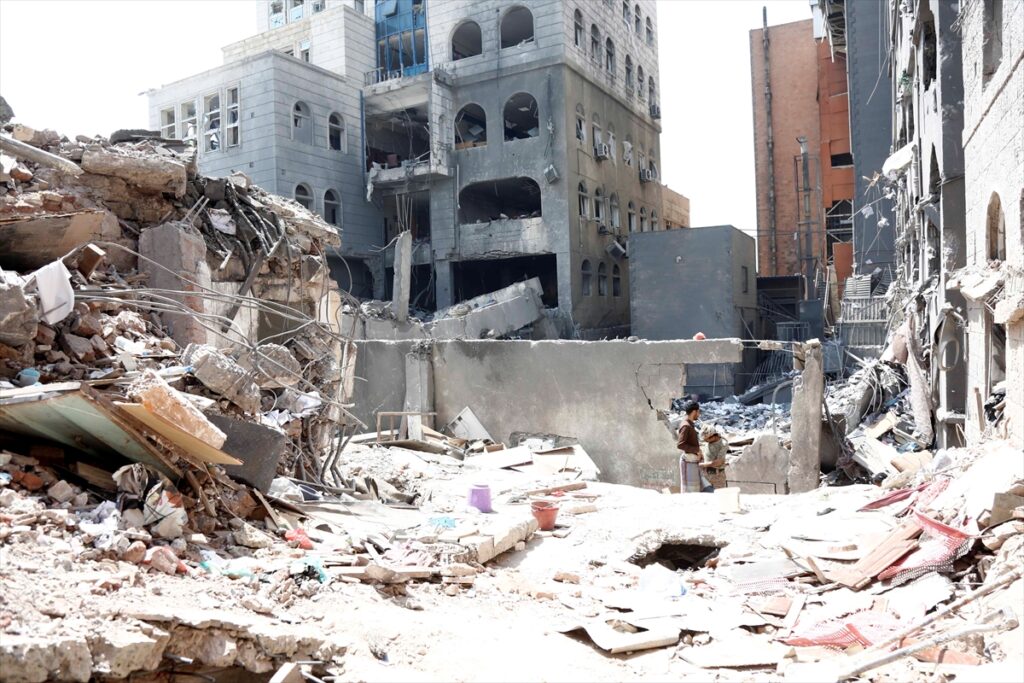
By Mohammed Al Jabri
Sana’a, (The Muslim News): On Wednesday, September 10, a day now being described as “Bloody Wednesday,” the Israeli Air Force unleashed its deadliest wave of air raids on the Yemeni capital, Sana’a, since the start of its campaign in July 2024. The city, under the control of the Ansar Allah movement (commonly known as Houthis), was rocked by strikes that killed at least 46 people and wounded 165 others, according to the Houthi-run Ministry of Public Health.
At least 31 journalists were killed when Israeli warplanes struck the Armed Forces’ Moral Guidance Department in Sana’a, which publishes the 26th of September newspaper, a key Houthi military mouthpiece. The facility was directly targeted, and the blasts also destroyed nearby civilian homes, further increasing the death toll.
On the same day, Israeli warplanes struck Al Jawf Governorate in northeastern Yemen for the first time, hitting a government complex in the Hazm district, where several government staff were killed and others wounded.
The September 10 strikes came less than two weeks after another high-profile operation.
On August 28, Israeli warplanes carried out around ten consecutive raids in Sana’a’s Beit Bous area, where senior Houthi leaders were holding a government meeting. Prime Minister Ahmed Al Rahawi and nine ministers were killed in the attack. Surviving ministers and government officials were injured and remain under treatment. Analysts have described the operation as a significant intelligence penetration into the group.
With “Bloody Wednesday,” the total number of casualties from Israeli operations in Yemen has now risen to at least 80 killed and more than 375 injured.
In total, 15 Israeli attacks — including both air and naval strikes — were recorded between July 2024 and September 2025.
Shifts in strategy
Initially, Israel targeted economic infrastructure, including ports, power stations, factories, and fuel depots, in an effort to undermine the Houthis’ funding base. From June 2025, it expanded to naval strikes from its Red Sea fleet, and later operations increasingly focused on assassinating political and military leaders.
Monitoring reports indicate that Israeli strikes disabled the ports of Hodeidah, destroyed cement factories in Amran and Bajil, put four power stations out of service, and wiped out 38 fuel storage tanks and two distribution depots. Operations also disrupted Sana’a airport.
The Houthis first targeted Israel on October 19, 2023, when they launched several cruise missiles and more than 30 drones toward Tel Aviv and other cities, framing the attacks as support for Gaza.

[Photo: The aftermath of an Israeli airstrike is seen in the Tahrir neighborhood in central Sana’a, the capital of Yemen, on September 13, 2025. The strike heavily damaged multiple buildings, rendering them unusable, and caused widespread destruction and casualties in the area. Photojournalist: Mohammed Hamoud/AA]
At the same time, human rights concerns are mounting. Human Rights Watch reported that on August 31, 2025, Houthi forces raided UN offices and detained at least 19 employees. They are among dozens of UN and civil society staff arrested since 2024, after Israeli strikes killed the Houthis’ head of government.
* A drone hit the entrance of a hotel in the southern Israeli city of Eilat on Thursday evening, according to media reports.
Israel’s public broadcaster KAN said a drone from Yemen exploded at the hotel’s entrance. No information is yet available about injuries.
The Israeli army said air-raid sirens sounded in Eilat after a drone was detected.
The Israel Hayom newspaper identified the hotel as the Jacob Hotel and said the explosion caused property damage.
The Houthis claimed a successful strike Thursday on a “sensitive” target in Tel Aviv using a hypersonic ballistic missile and an attack on Ramon Airport with a drone.
Separately, the Israeli army said it intercepted a missile launched from Yemen following sirens sounding in several areas in Israel.
[Photo: A funeral ceremony being held at the Al-Shaab Mosque for 32 journalists who were killed at their offices of the Al-Yemen and 26 September newspapers following attacks by Israel last week at the Al-Shaab Mosque in Sanaa, Yemen on September 16, 2025. Photojournalist: Mohammed Hamoud/AA]